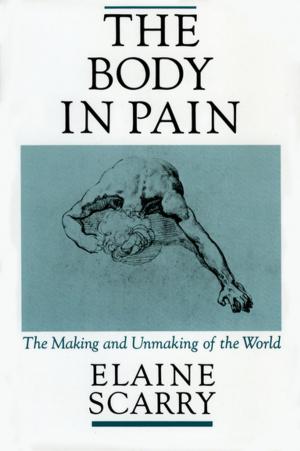Happiness and the Good Life
Nonfiction, Religion & Spirituality, Philosophy, Good & Evil, Health & Well Being, Psychology, Social Psychology, Ethics & Moral Philosophy| Author: | Mike W. Martin | ISBN: | 9780199930081 |
| Publisher: | Oxford University Press, USA | Publication: | February 1, 2012 |
| Imprint: | Oxford University Press, USA | Language: | English |
| Author: | Mike W. Martin |
| ISBN: | 9780199930081 |
| Publisher: | Oxford University Press, USA |
| Publication: | February 1, 2012 |
| Imprint: | Oxford University Press, USA |
| Language: | English |
What is happiness? How is it related to morality and virtue? Does living with illusion promote or diminish happiness? Is it better to pursue happiness with a partner than alone? Philosopher Mike W. Martin addresses these and other questions as he connects the meaning of happiness with the philosophical notion of "the good life." Defining happiness as loving one's life and valuing it in ways manifested by ample enjoyment and a deep sense of meaning, Martin explores the ways in which happiness interacts with all other dimensions of good lives--in particular with moral decency and goodness, authenticity, mental health, self-fulfillment, and meaningfulness. He interweaves a variety of examples from memoirs, novels, and films along the way, connecting his discussion of the philosophical issues to related topics that interest all of us: virtue, love, philanthropy, suffering, simplicity, balancing work and leisure, and much more. Drawing on wide-ranging and robust evidence, Martin also makes the case that we need a "politics of happiness" whereby government would apply the results of recent "happiness studies" in psychology to public policy.
What is happiness? How is it related to morality and virtue? Does living with illusion promote or diminish happiness? Is it better to pursue happiness with a partner than alone? Philosopher Mike W. Martin addresses these and other questions as he connects the meaning of happiness with the philosophical notion of "the good life." Defining happiness as loving one's life and valuing it in ways manifested by ample enjoyment and a deep sense of meaning, Martin explores the ways in which happiness interacts with all other dimensions of good lives--in particular with moral decency and goodness, authenticity, mental health, self-fulfillment, and meaningfulness. He interweaves a variety of examples from memoirs, novels, and films along the way, connecting his discussion of the philosophical issues to related topics that interest all of us: virtue, love, philanthropy, suffering, simplicity, balancing work and leisure, and much more. Drawing on wide-ranging and robust evidence, Martin also makes the case that we need a "politics of happiness" whereby government would apply the results of recent "happiness studies" in psychology to public policy.















